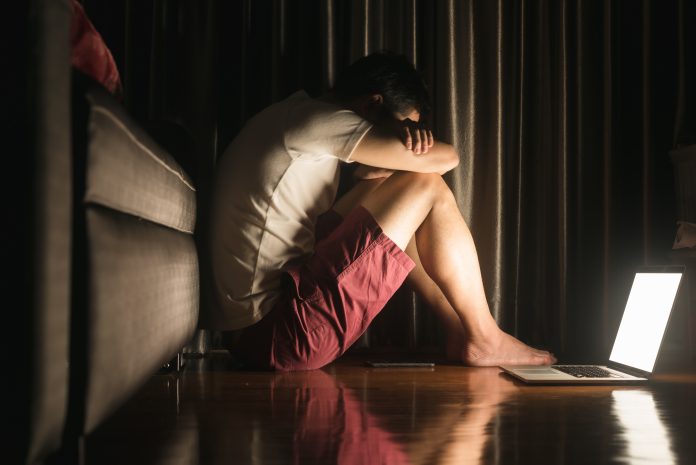PMAC, mental health training and wellbeing professionals, discuss the link between social media and mental health, highlighting that the blame may lie with humanity rather than technology and how we can make a change
There are an estimated 3.8 billion users of social media in 2020. Facebook currently boasts 2.4 billion active social media users, Instagram 1 billion users, with figures anticipated to grow as lesser developed digital markets catch up with the increased availability of mobile phones.
Marketing tool
Social media has also gone from a social hub, used to connect with people you know and with those that you don’t, to a marketing strategy. Businesses globally are consistently turning to social media to sell their products, as this allows them to engage directly with their target audience and to keep up with trends. Social media influencers are said to be shaping our societal ideals of body image, as brands use those with high numbers of followers to sell their products.
With this, we hear more and more every day about what the latest research tells us about the impact of social media on our mental health. Google “social media” and “mental health” and you will be presented with reams of research and articles into the pros and cons of social media, and how this can impact our mental health.
Connecting the world
On the one hand, social media allows us to connect with people all over the world, and romantic relationships are constantly being formed through meetings on social media networks such as Facebook or Instagram. It is easier than ever to find like-minded people through searching for others who have liked posts that you have, joining groups, or even searching for hashtags that you like or relate to. There is a strong body-positive movement that shines a light on the hidden truth behind so-called “perfect” Instagram shots, and instead promotes a world of body-acceptance, regardless of your physical appearance. It is there to use at your own free will, and so social media really does put the world at your fingertips. One could be left with the question of how loneliness can still exist in such a day and age.
The dark side: Depression, anxiety and low self-esteem
However, the message that we consistently hear is not one of building support networks and social support, nor of a world of ever-increasing connectedness. Instead, we hear that social media is linked to depression, anxiety and low self-esteem. That social media can lead people to feel inadequate. We are hearing that young people are finding social media more addictive than alcohol or cigarettes, that it is negatively impacting both the length and quality of sleep, and can amplify feelings of loneliness.
Beyond this, there is an increasing awareness as to the impact of “trolling” online – that is people posting negative, hurtful, inflammatory comments. Online, people can hurl abuse at one another from a distance, with little repercussion. We can choose to remain anonymous online, and can feel free from the social norms and moral constraints that govern so much of how we behave in day to day life; thus, granting people permission to act in a cruel and callous way, as a result of a process known as deindividuation. This sense of power and control can make people feel important, whilst remaining conveniently detached from the hurt that they are causing. So how can social media be such a tool of positivity, whilst at the same time causing so much harm and conflict?
The answer may well lie in what is known as “motivated reasoning”
As human beings, we like to be right. Being right brings with it a sense of safety and comfort from being questioned, criticised or berated. Being right gives us the sense of a job well done, that we have understood a message and that our beliefs and values make sense. It brings with it a sense of belonging, to the “right” group.
So, what about when we are wrong? We are often reluctant to hear that we may have missed a point, been incorrect or even had the potential to cause harm with our line of thinking. To learn that there were other options available that we chose not to take can make things feel uncertain, and make us feel uneasy. Even if what we believe was negative or had the potential to cause harm as first and foremost, it is often our instinct to protect ourselves and our beliefs. Our values and our beliefs are so closely tied to our identities and govern so much of our behaviour, that to feel that we may have been wrong or that there is an alternative line of thinking can lead us to question our very selves.
What do we mean by “even if our beliefs are harmful”? Well even in the event that we believe something awful or negative about ourselves, such as that we are worthless, that we are a burden, that we are not accepted, we may still be drawn to proving ourselves right, rather than the answer to evidence that may tell us otherwise.
User control – “In a world where you can be anything be kind”
When it comes to social media, we have total control to portray our lives exactly as we please. We can be as open or as anonymous, we choose what to share or keep private, and we control the tone in which we set every picture or post. We have far more control over our online lives than we often do of our own.
We can choose to follow and search for accounts that make us feel positive, motivated, and good about ourselves. Alternatively, we can choose to seek all the evidence that confirms our negative beliefs about ourselves, humanity and the world.
People’s online lives so very rarely reflect their reality, and we choose to become invested in the carefully constructed window that we have into people’s lives. Even people that we don’t know. Nobody forces us to follow accounts that make us feel inadequate, and yet for some to find a community that reflects what they already believe can feel much like coming home, regardless of the pain such reinforcement brings with it. For others, the temptation to prove themselves right is an itch that just cannot go un-scratched. On the flip side, we can choose if we want to, to go above and beyond to surround ourselves with sources of motivation and positivity.
The problem perhaps is not social media itself, but the mirror it holds up to ourselves. In mere seconds you can find confirmation of all that you already think, and have your beliefs normalised for better, for worse or otherwise.
The real problem with social media is the freedom it gives us to paint the world to be whatever we think it is.











